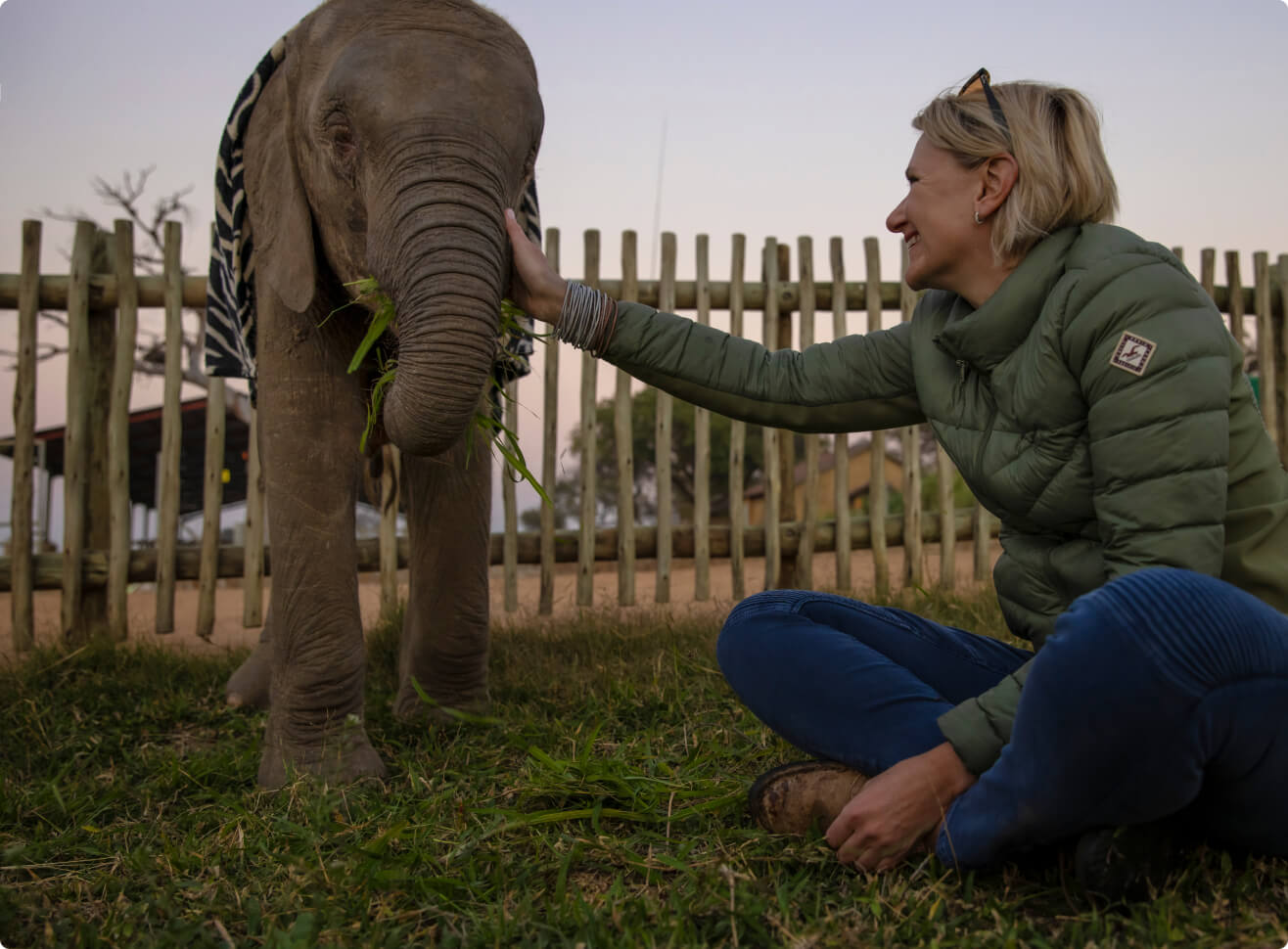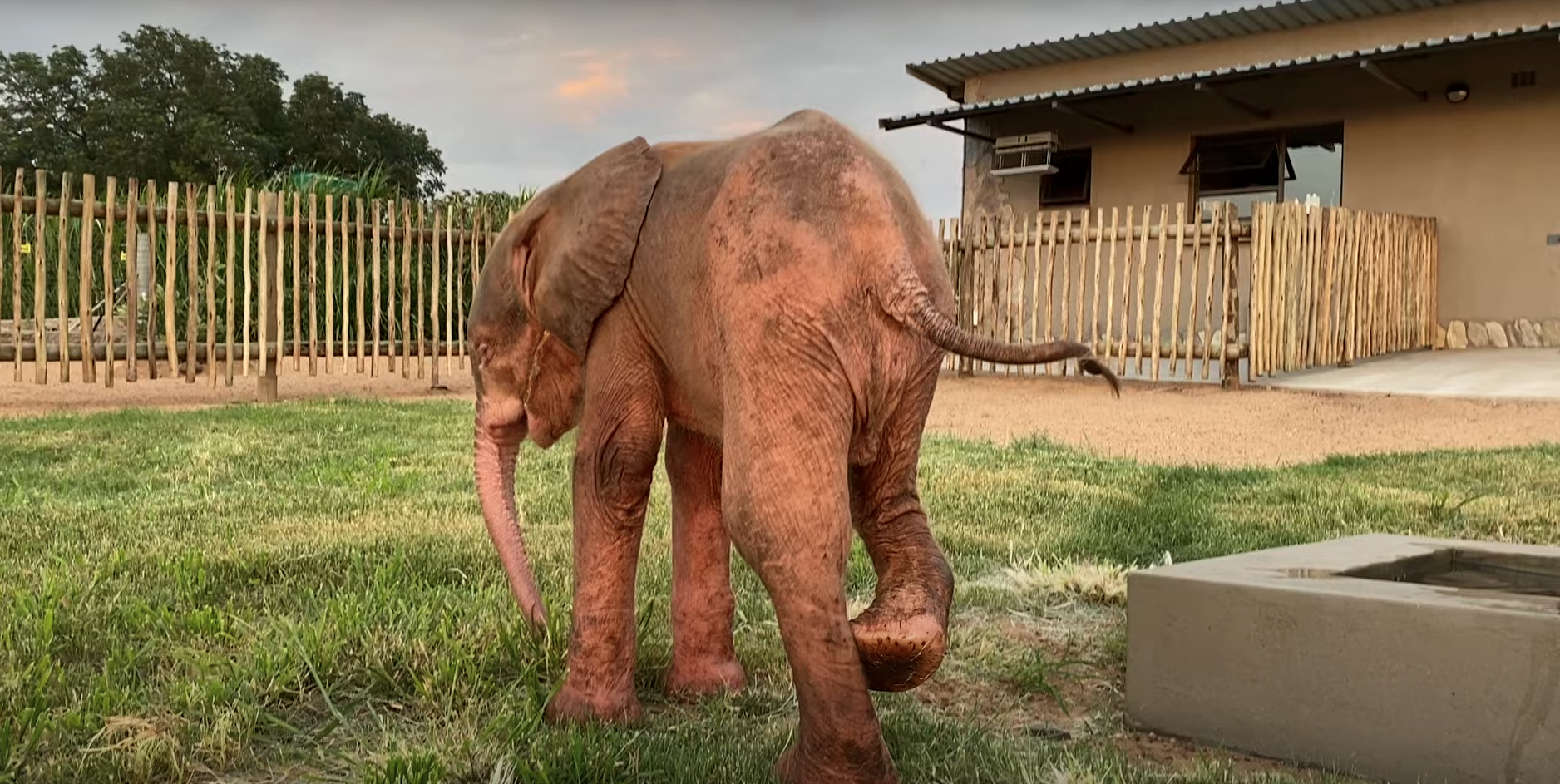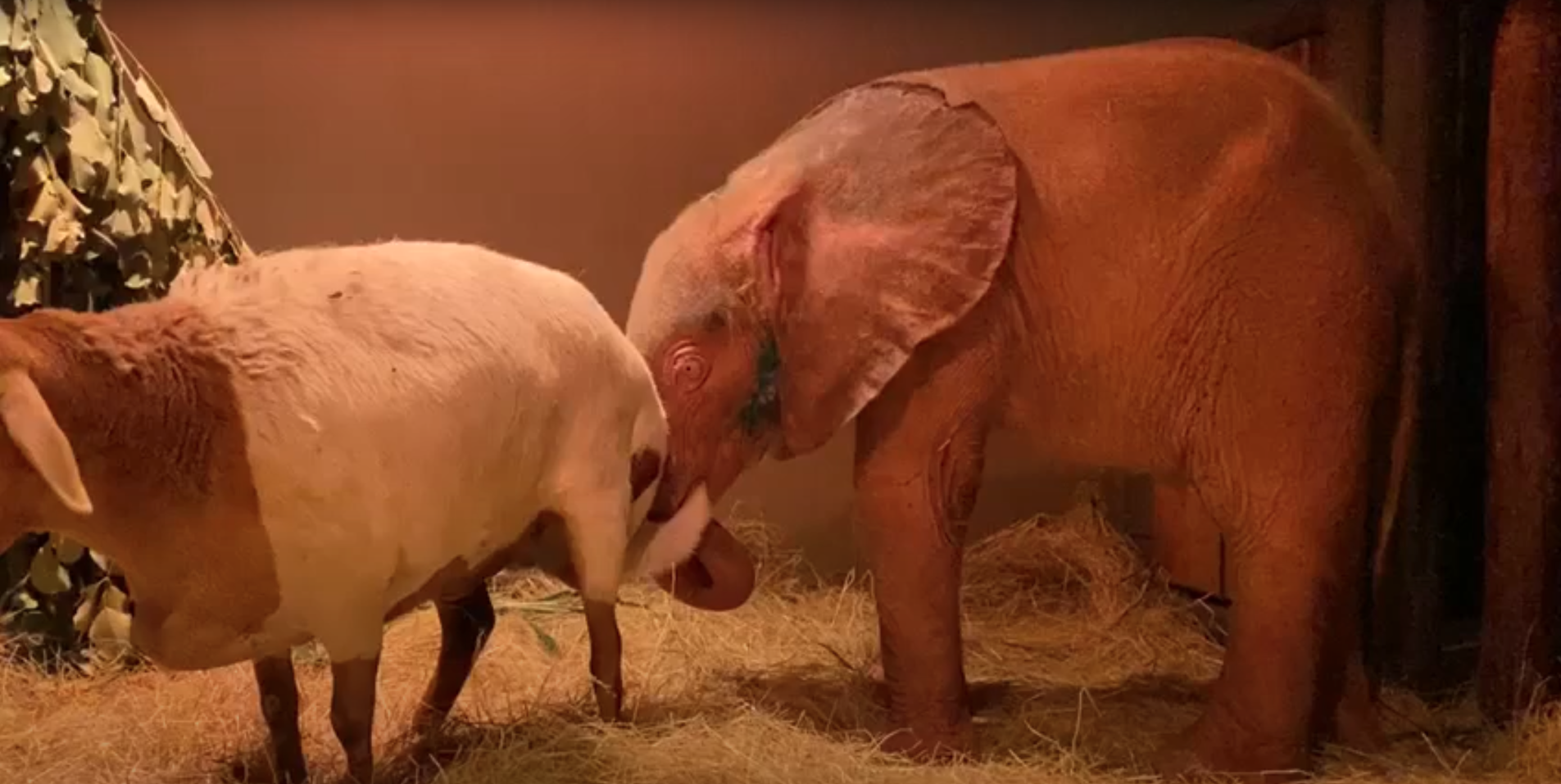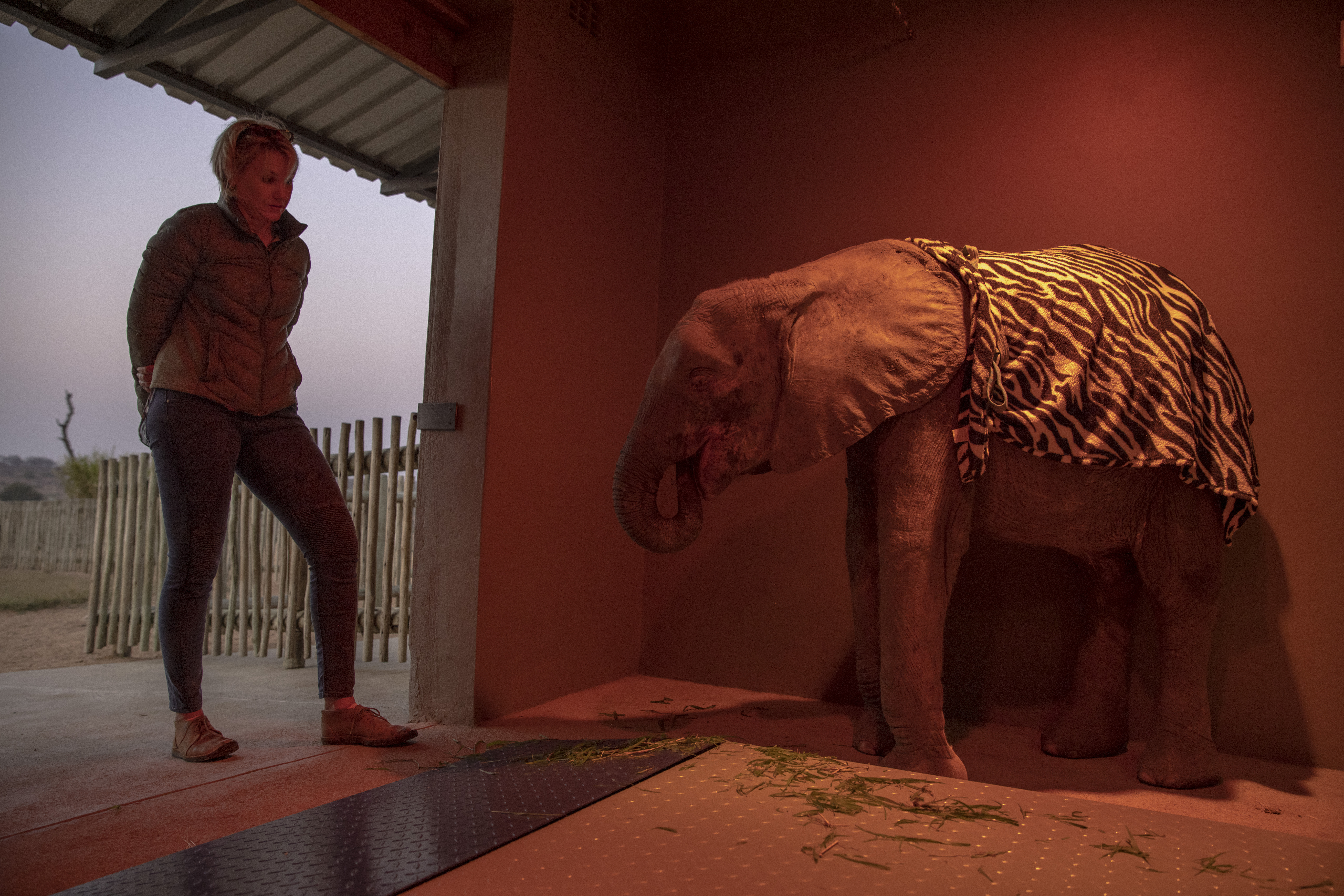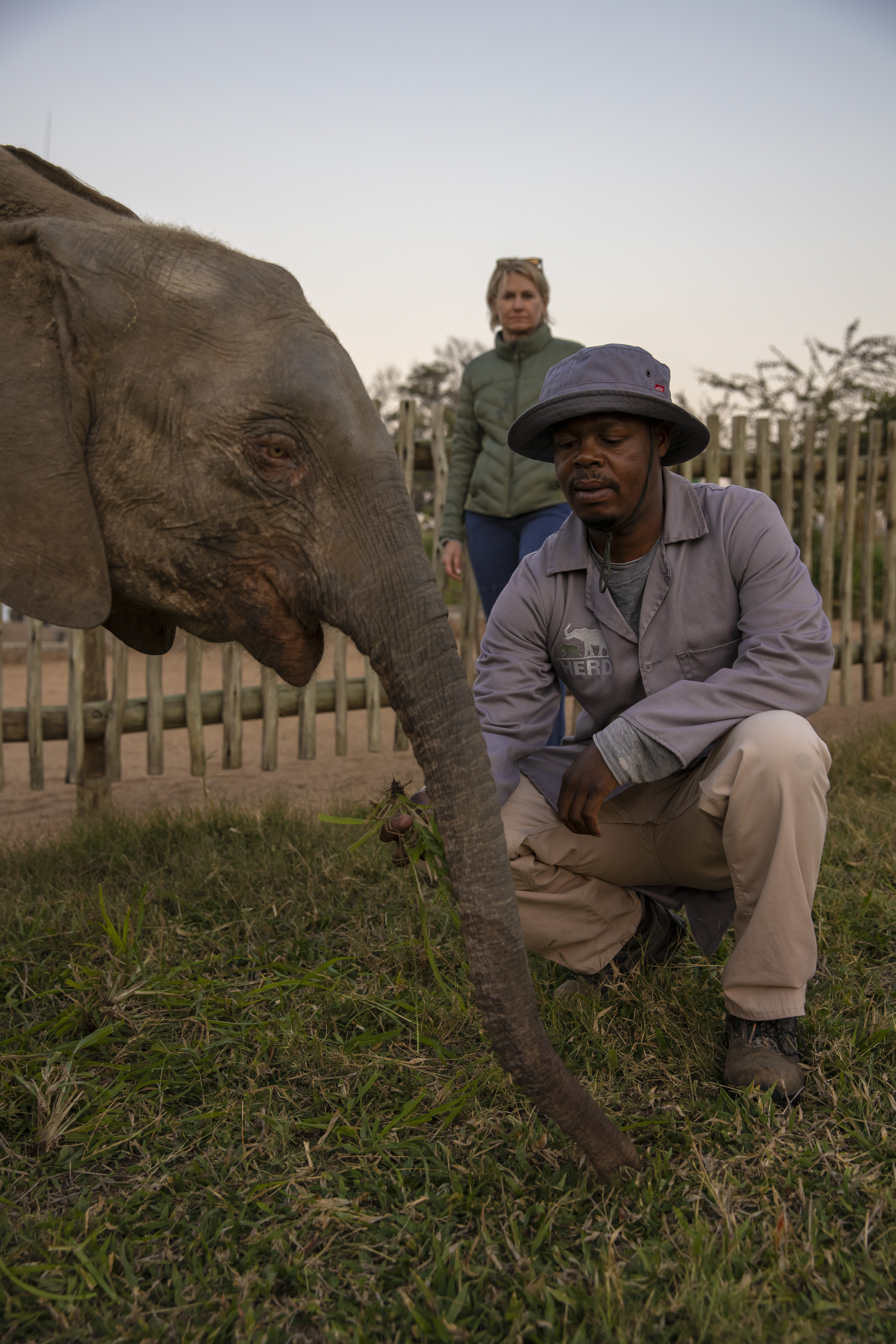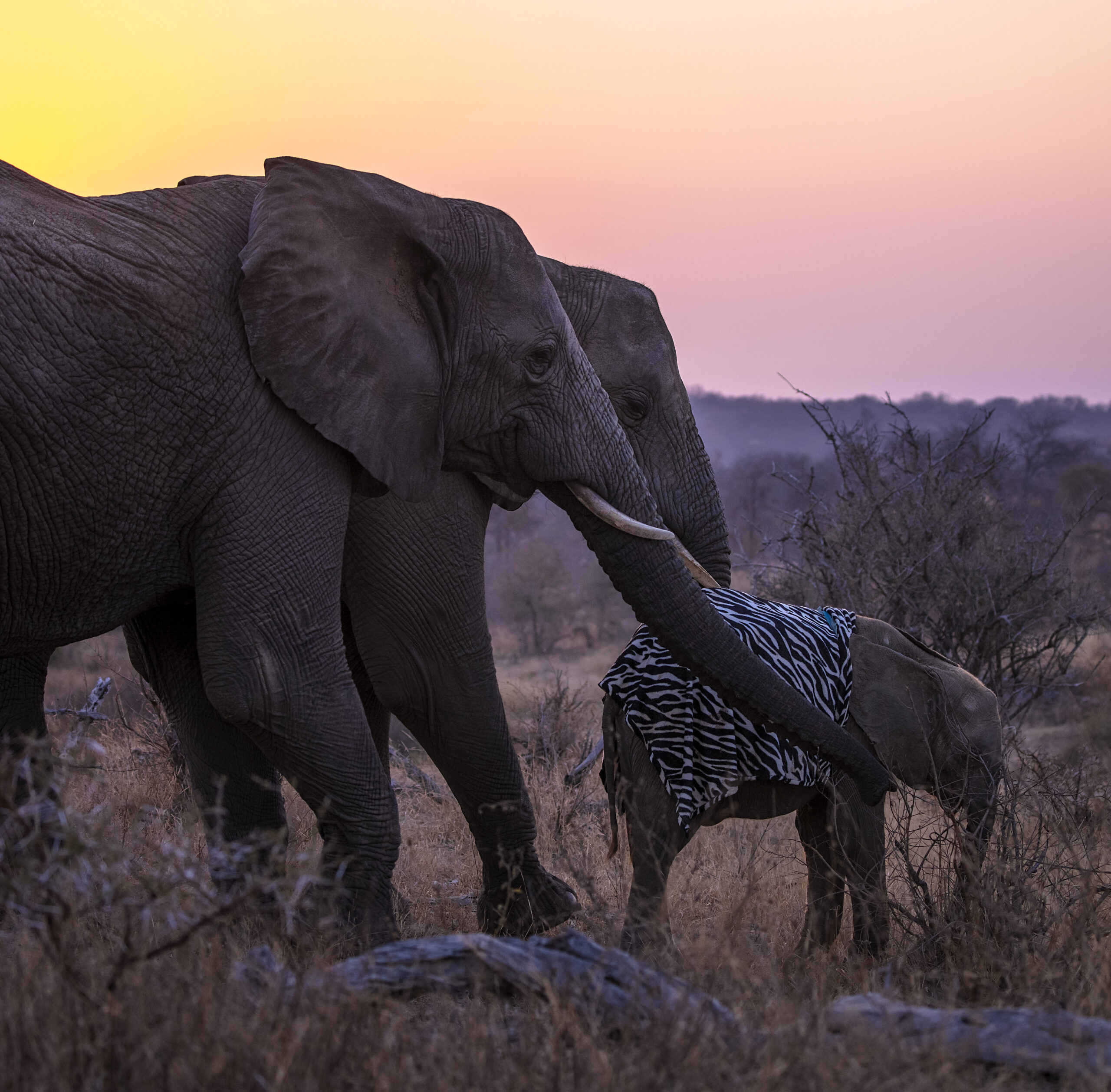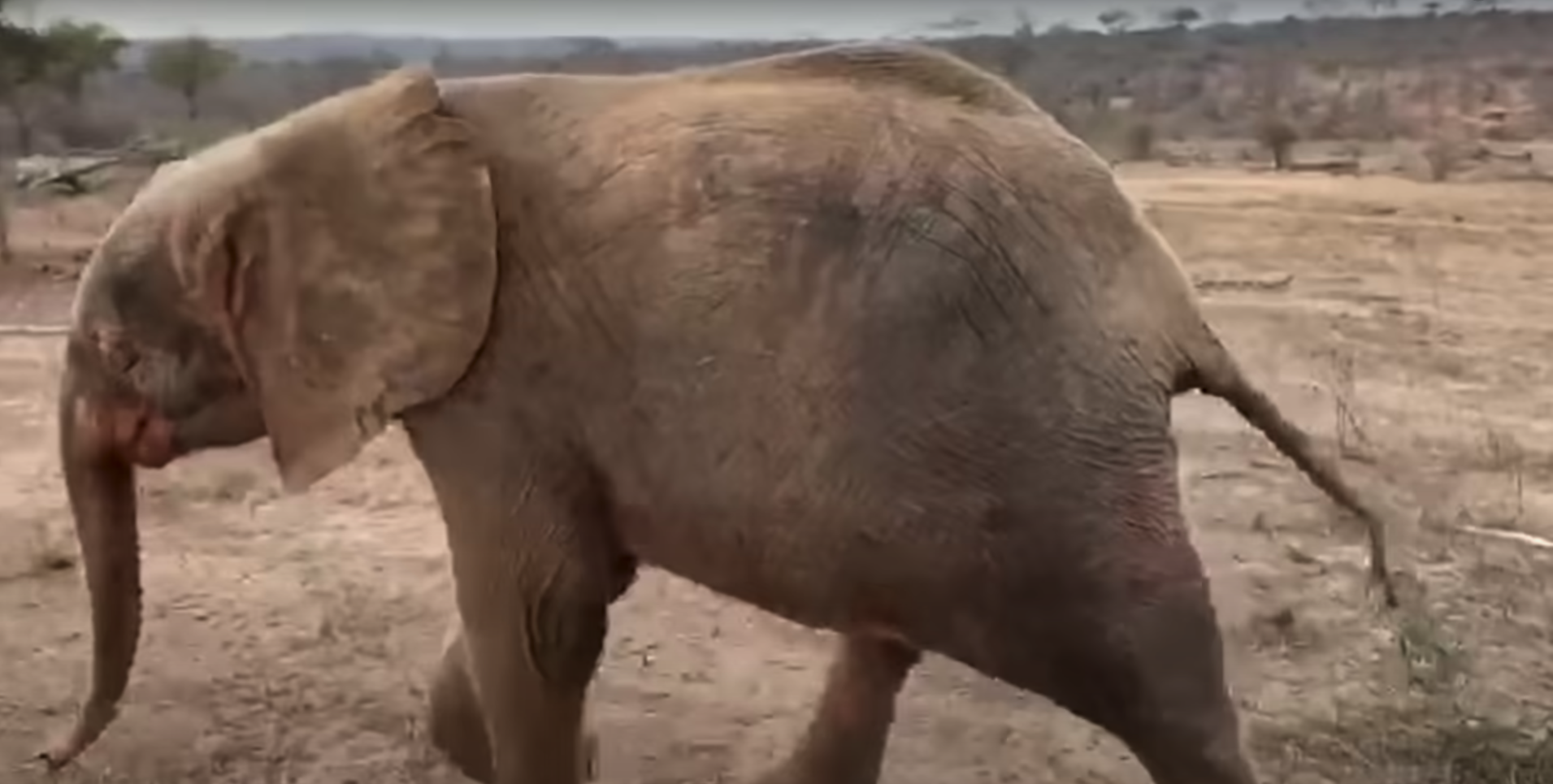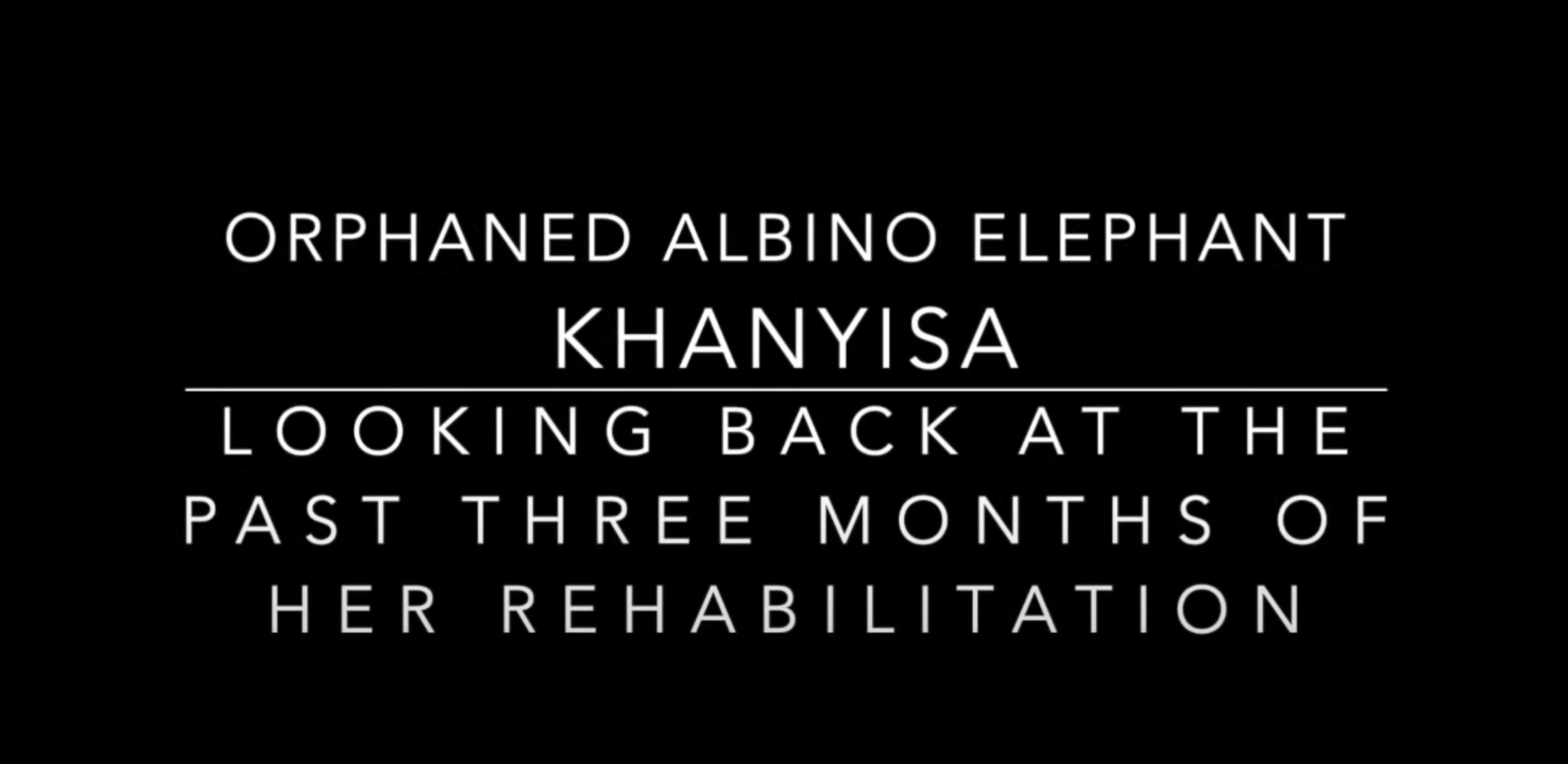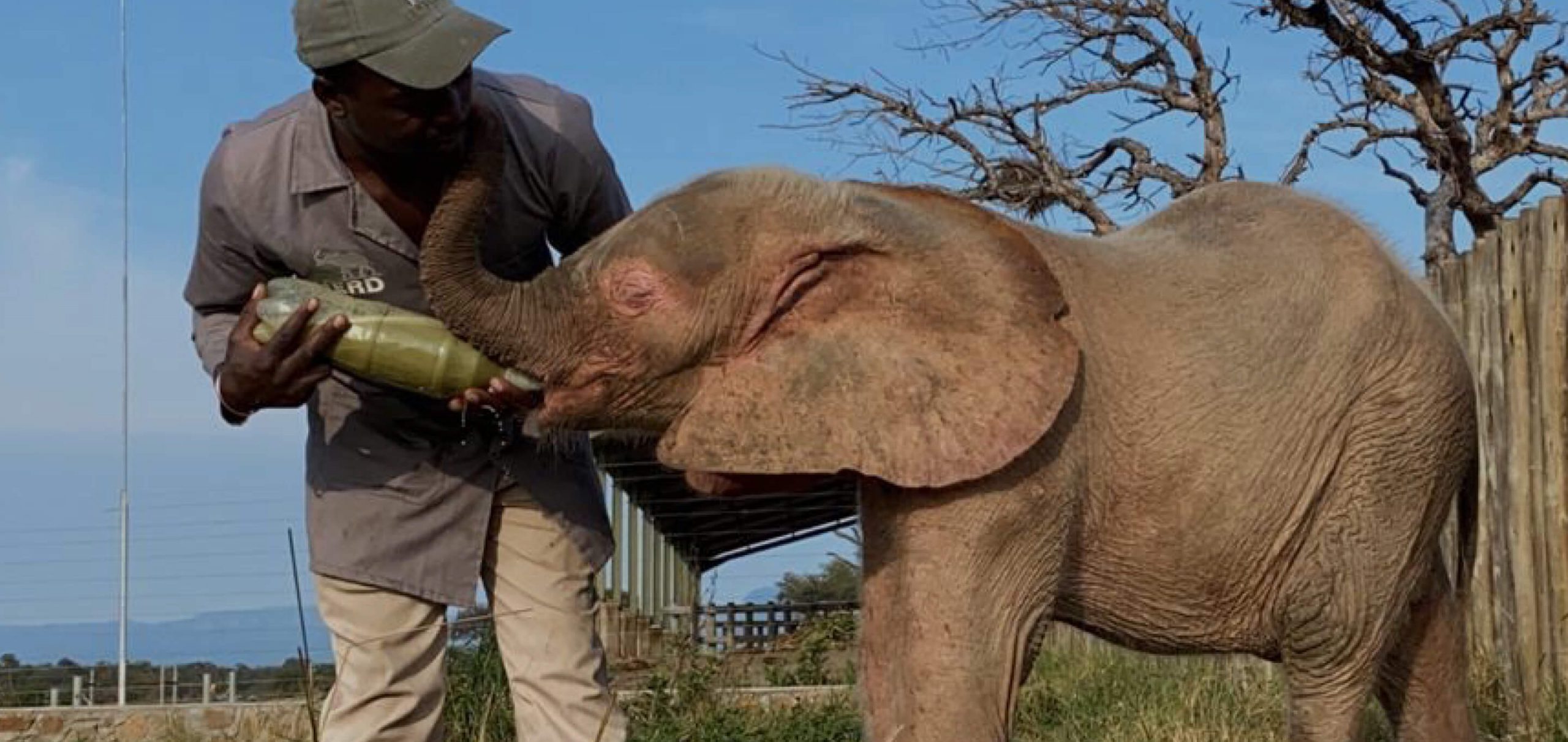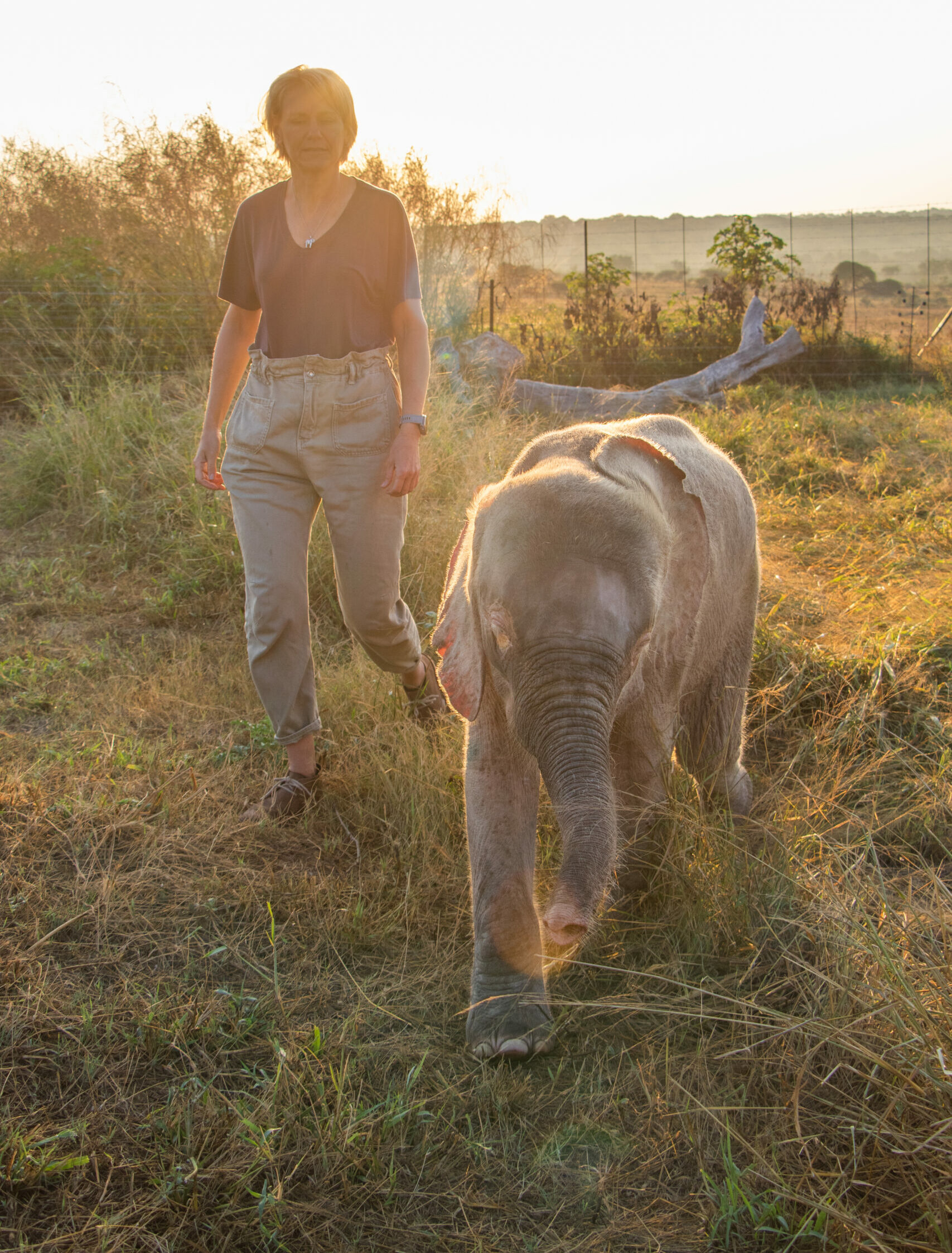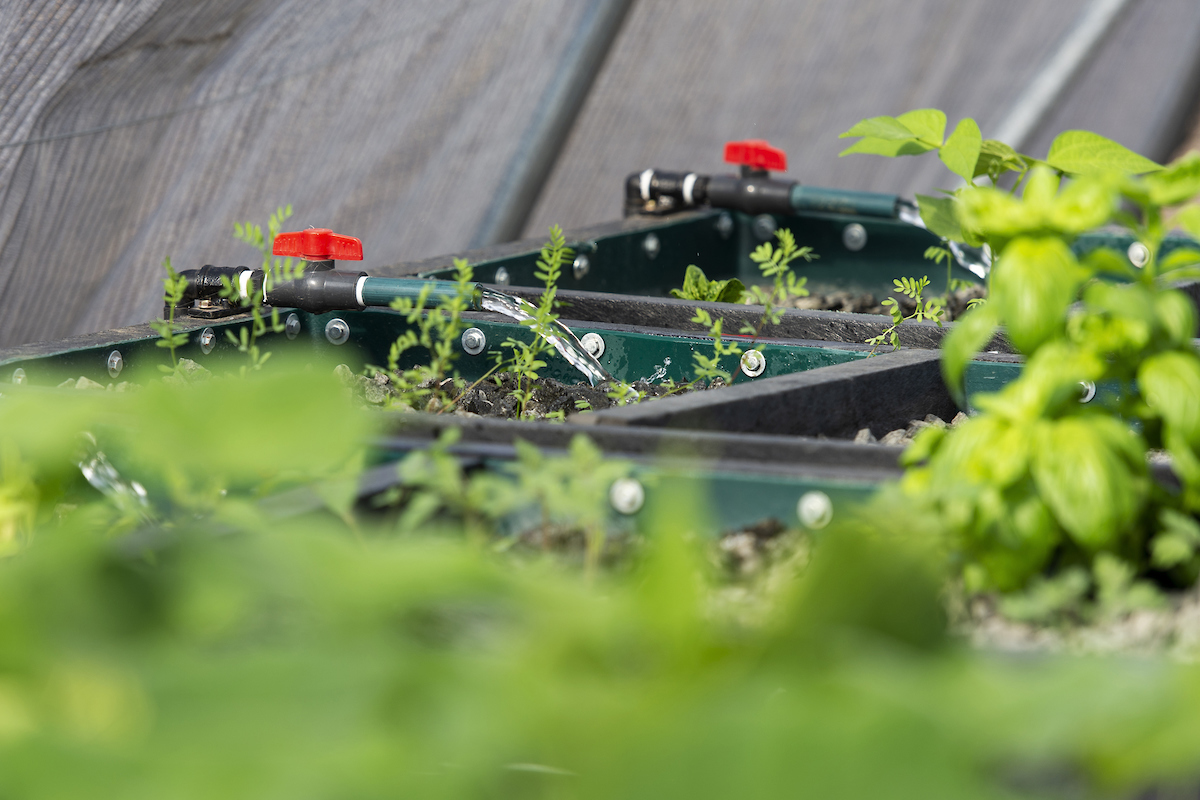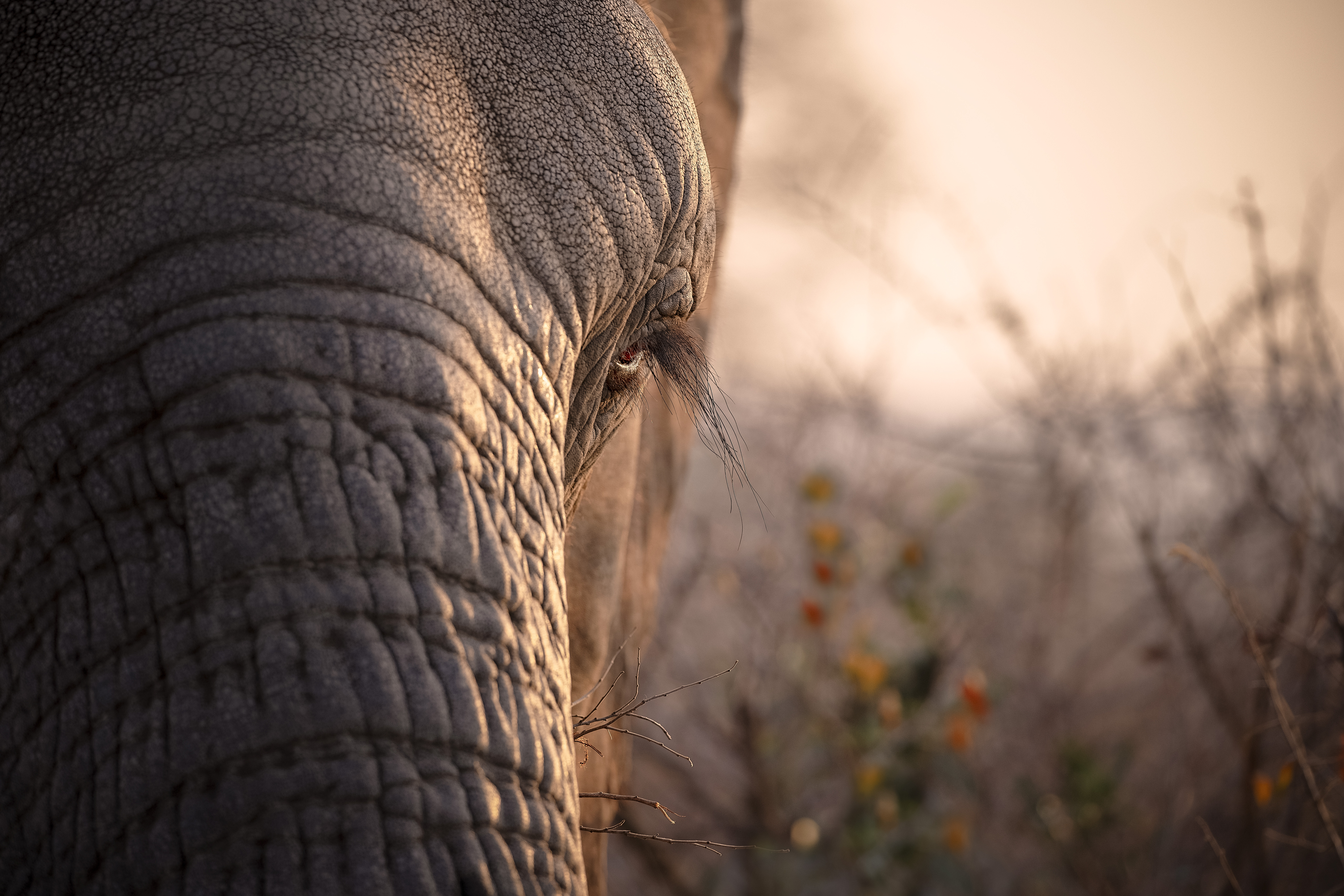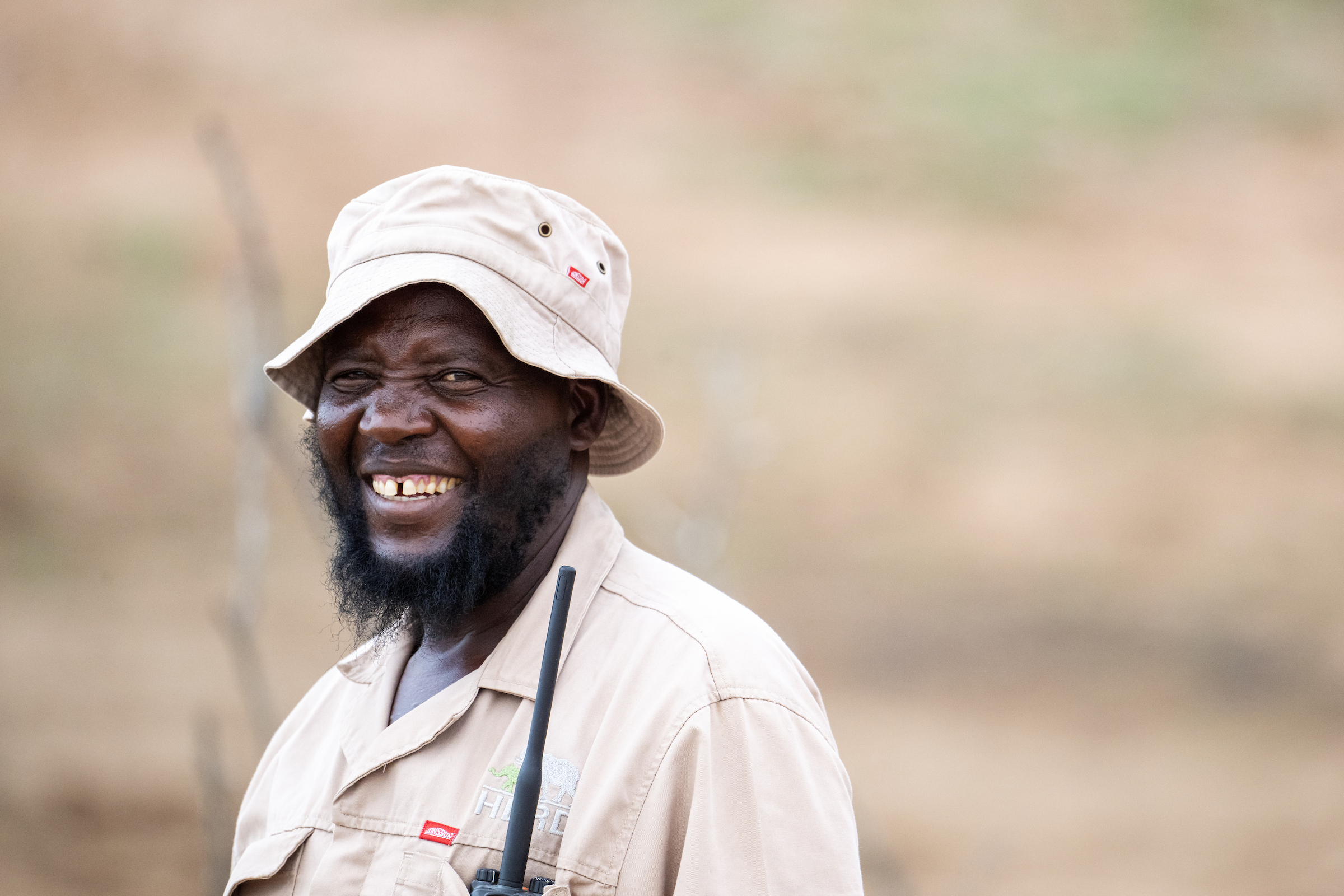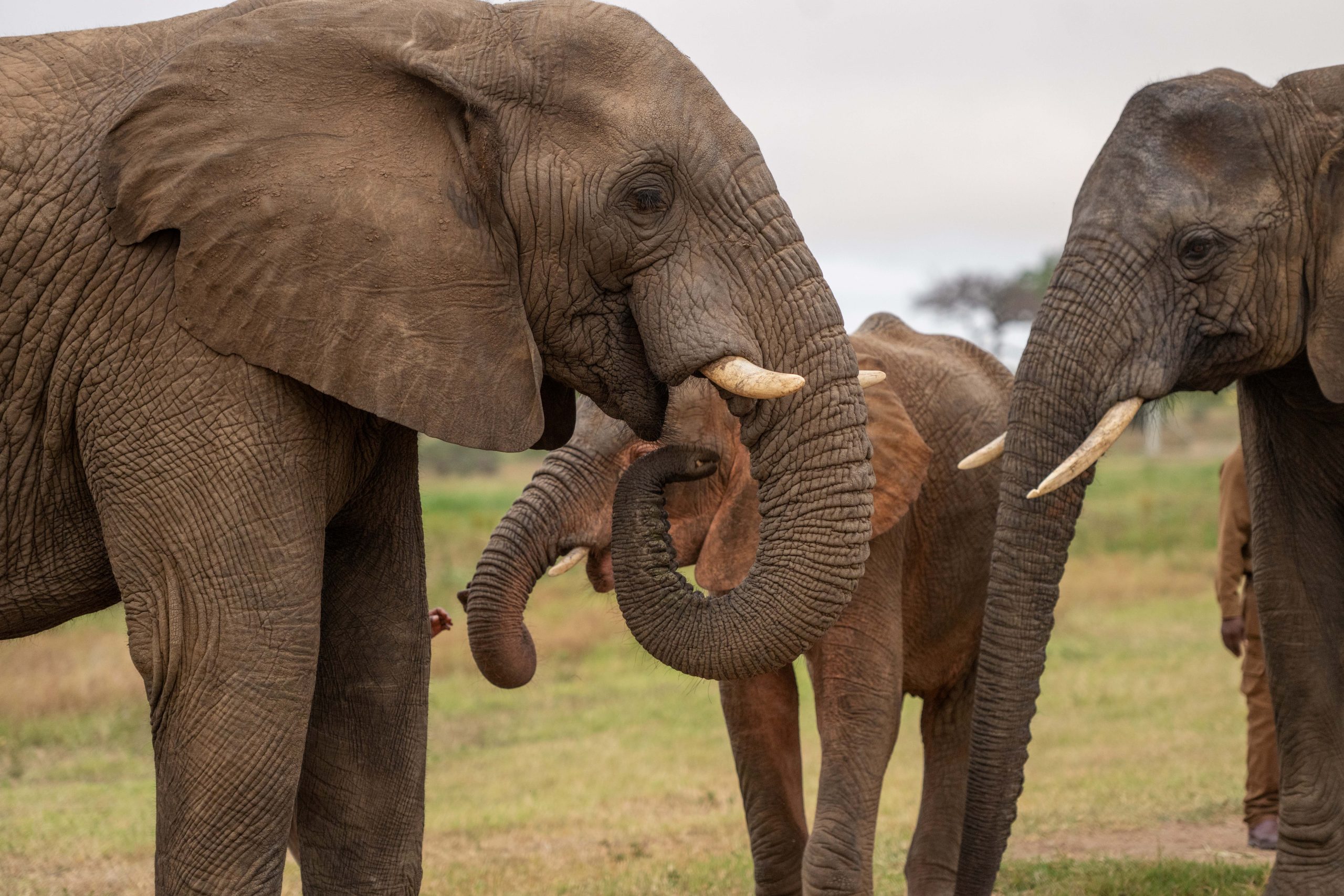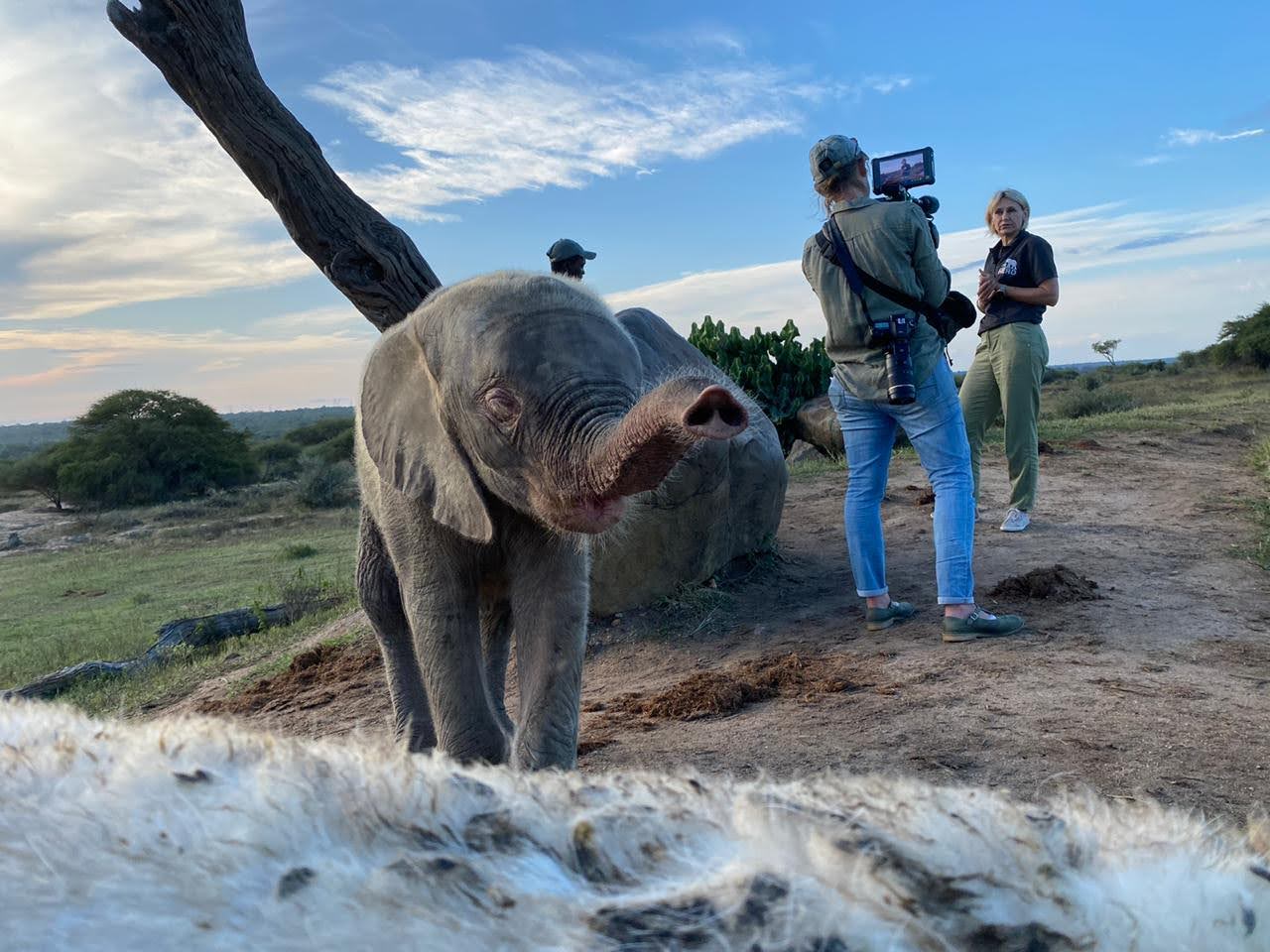Our HERD elephant orphan programme dates back to 2002 when we rescued the very first orphan named Jabulani. Following this, we successfully rehabilitated and integrated two more orphans: Kumbura and Timisa. Our official orphanage was built in 2019 to provide a well-equipped temporary home for orphans to heal and recover.

Join Our “Human Herd” Family
Our mission is to act as a temporary “human herd” to these abandoned or displaced elephants until they’re ready to meet their new herd. You can join the human herd by fostering or donating to the elephants.

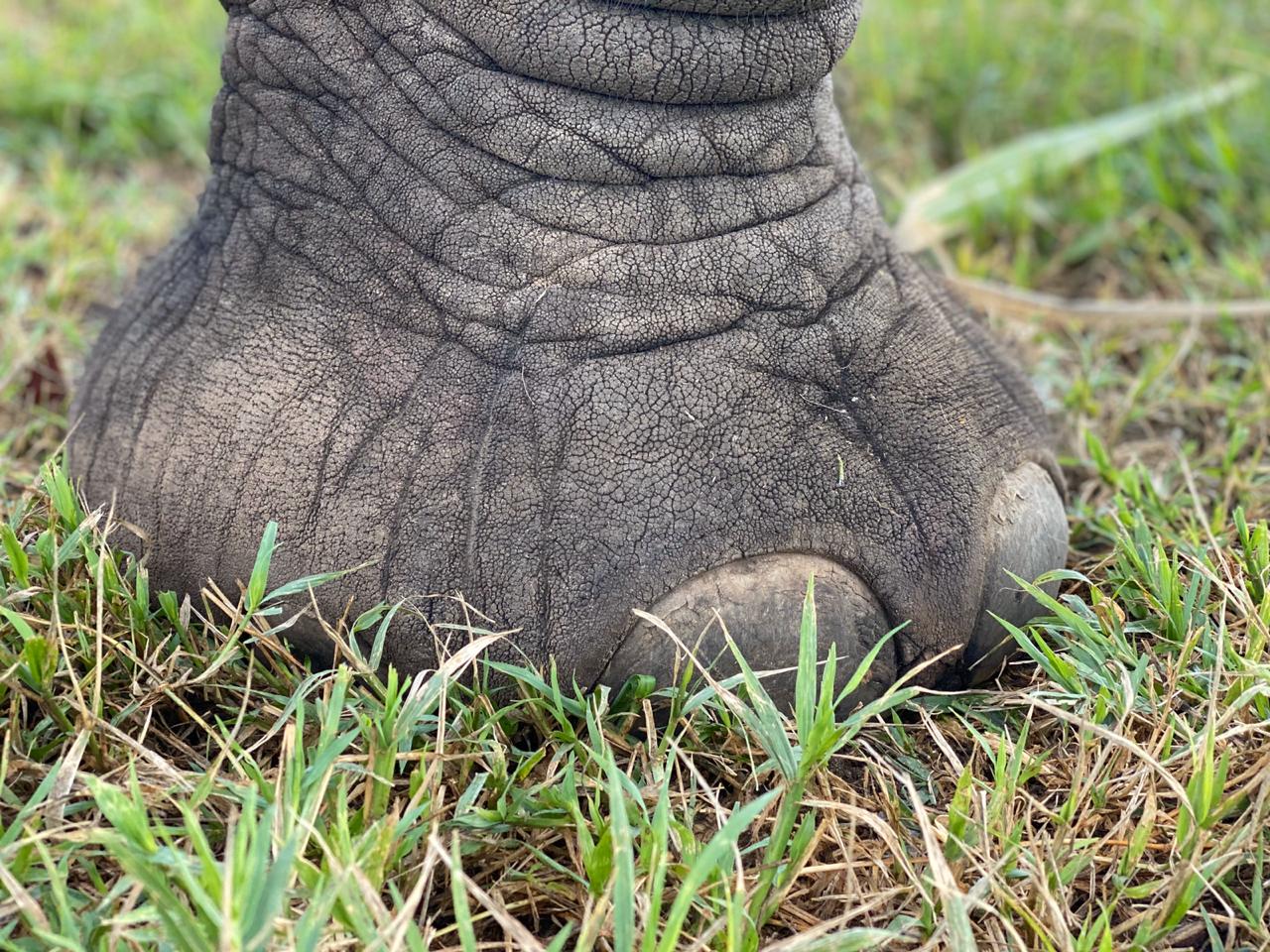
Stepping In
When an elephant orphan is discovered out in the wilderness, it is very often traumatised, injured, dehydrated and starved. When we receive a phone call to step in to help, we know that we need to act fast—very fast. Many elephant orphans are not lucky enough to be rescued, considering the predators that await them in the bush. We’re always prepared for the worst, heading out with medical supplies to either help rescue or provide help to the abandoned little one.
Each orphan is also unique, with its own trauma, personality, challenges, and requirements. Therefore, we must constantly adapt and be alert to anything that the elephants might need.
It’s heartbreaking to see calves in such a desperate state, and you can almost sense their sorrow, confusion and pain. But when we see the joy they experience when we finally reintegrate them into their new herd, we know they have a second chance at life with their own species and that their trauma will start to be healed.
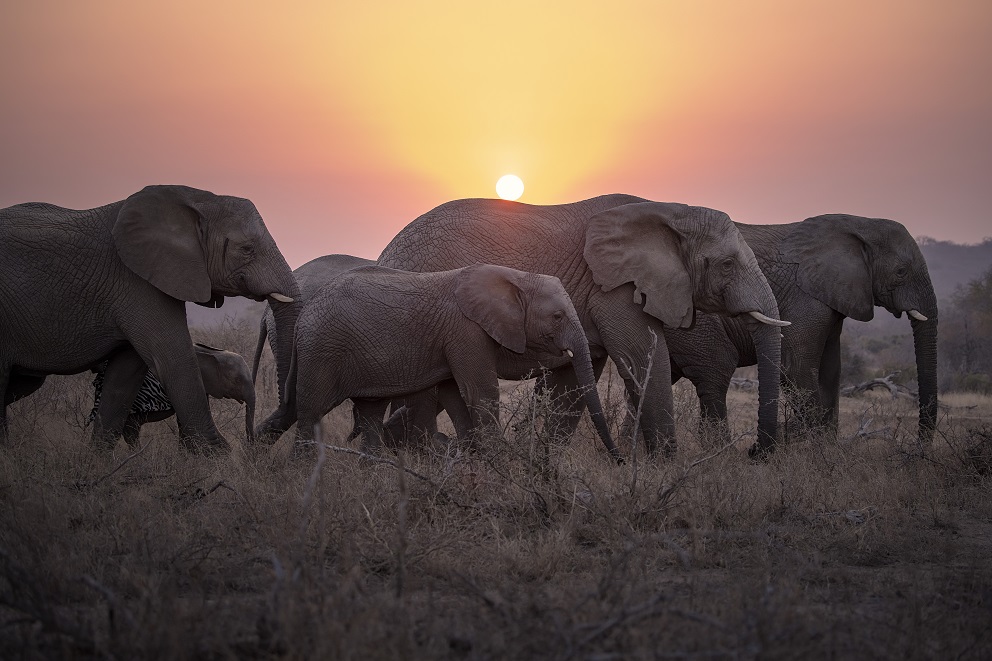
The Statistics Paint a Dire Picture
The latest Elephant Census states that there are only 352,271 elephants left in the world, demonstrating a 30% drop in population over the past seven years. This year, the African forest elephant was listed as critically endangered, and the African savanna elephant as endangered on the IUCN Red List of Threatened Species.
These statistics are a result of widespread elephant poaching and ongoing human-wildlife conflict, where the rising number of man-made developments restricts elephant migration.
In a country where wild habitats are steadily disappearing to overpopulation and agriculture, and fences cut through elephants’ migration pathways, HERD aims to create a sanctuary for the rehabilitation and reintegration of displaced elephants.
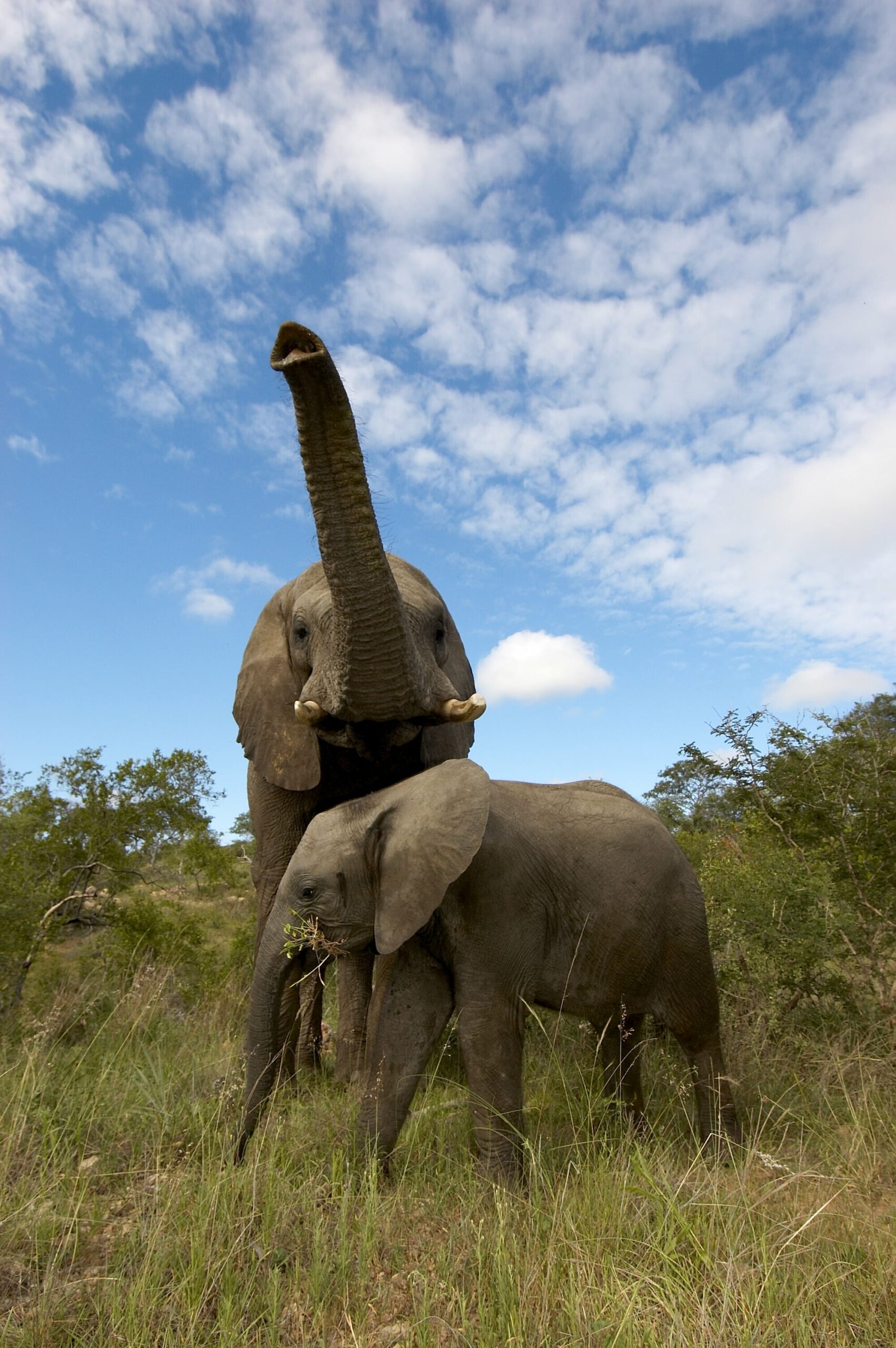
Our Mission to Save Gentle Giants
At HERD, South Africa’s first and only dedicated elephant orphanage, we understand that elephants are social animals. And that, to provide them with a second chance at life, they must find acceptance within a herd.
The rescued elephant herd currently in our care roams freely during the day, with human carers providing protection, and returns to the protection of a homestead after sunset. The herd includes males and females of different ages, which exposes each calf to juveniles, subadults, and adults in their species.
Most of HERD’s elephants were once orphans themselves, resulting in a unique solution for orphaned calves in Southern Africa. Our ultimate long-term goal for the elephants is to rewild them into safe spaces where they are not at risk of the human-elephant conflict that caused them to be abandoned or displaced.
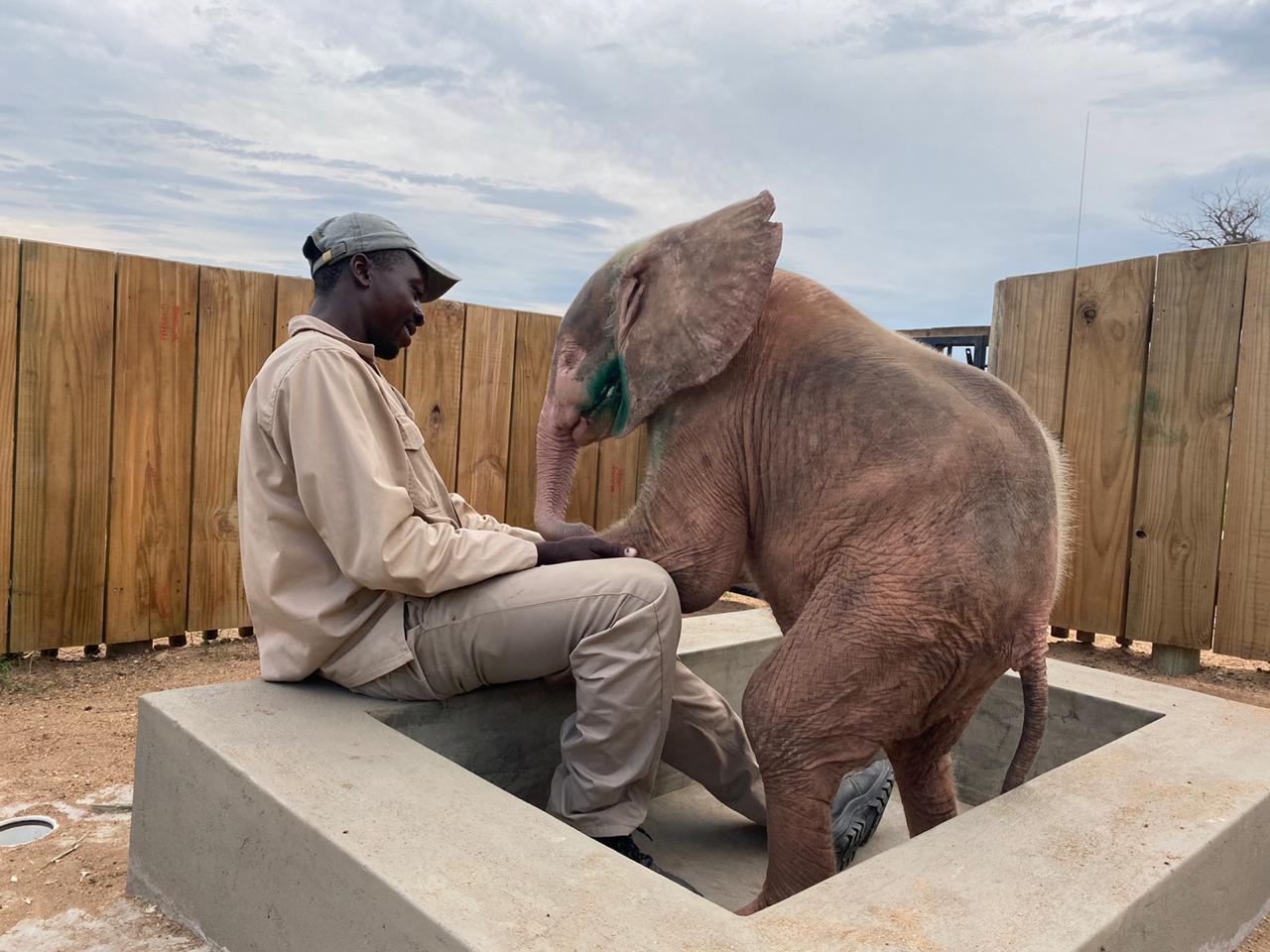
The Rehabilitation Process
Elephants are orphaned primarily due to human-wildlife conflicts such as poaching and snaring. This means that rescued orphans are often severely injured, potentially still caught in traps, sunburnt, dehydrated, starving and emaciated, and traumatised when they arrive at our orphanage.
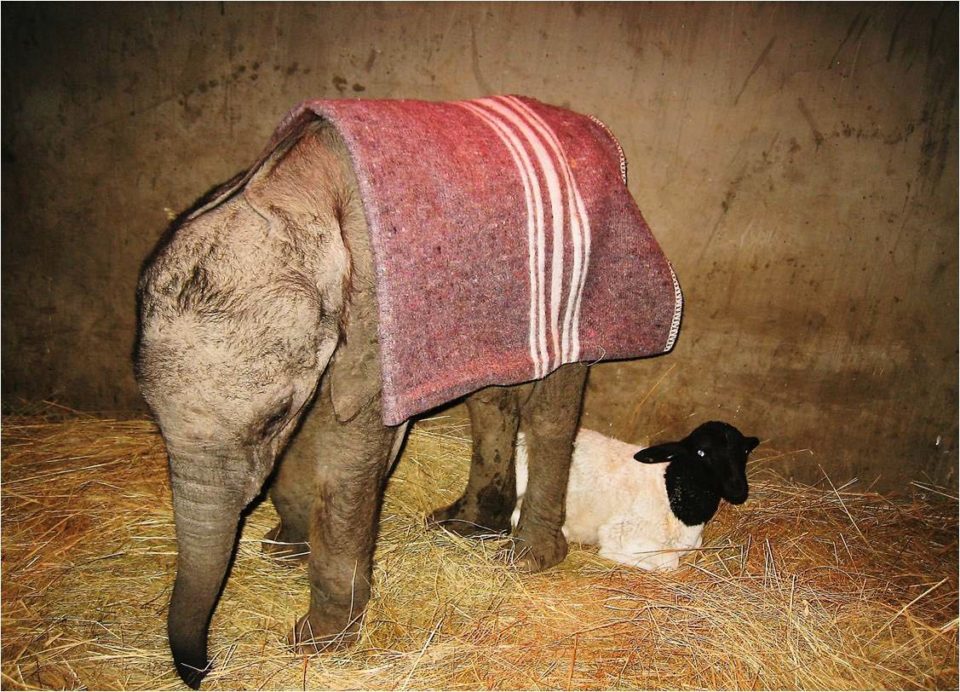
The First Course of Action
Firstly, the orphaned calf is placed in quarantine and thoroughly assessed to determine the state of their health. As soon as the calf has settled into their new environment and show evidence of improvement, they can start to explore the orphanage garden, feed outside from the grass, bond with the elephant herd across the fence in the homestead, through sights, sounds and smells, and be stimulated sufficiently through exercise, play and their senses.
The elephant calf is by no means left alone. Our special companion sheep, Lammie the Legend and Nungu the Nurturer, provide vital animal company to the calves and a sense of what we call “friendsheep” when it’s needed most. Together, these animal friends roam their garden wilderness, creating a sense of security for the orphaned calf.
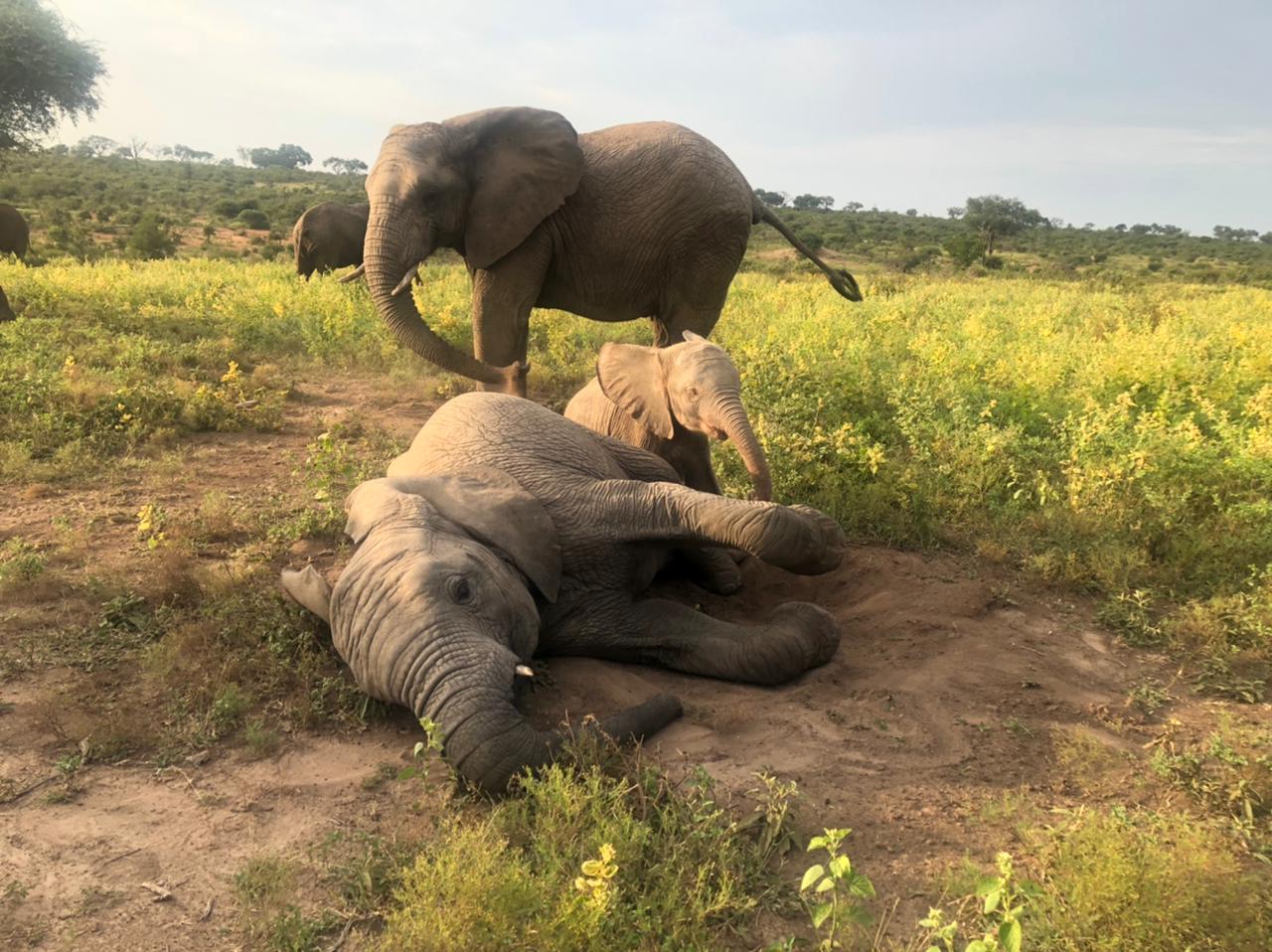
Integration
Once the calf is fully healed from their injuries, the integration process starts. The calf is gradually introduced to the rescued herd, starting with one-on-one encounters with each elephant, trunk to trunk.
The calf then starts to join the herd on walks in the wilderness, little by little, starting with two hours, approximately, then four, then six and eventually on full 12 hour walks, and the calf develops strength, grows in confidence and gains the acceptance of the herd. The presence of the elephant herd helps to calm the calf, slowly healing the trauma of being orphaned. The older elephants also help to raise and teach the calf, acting as the family the orphan has lost.
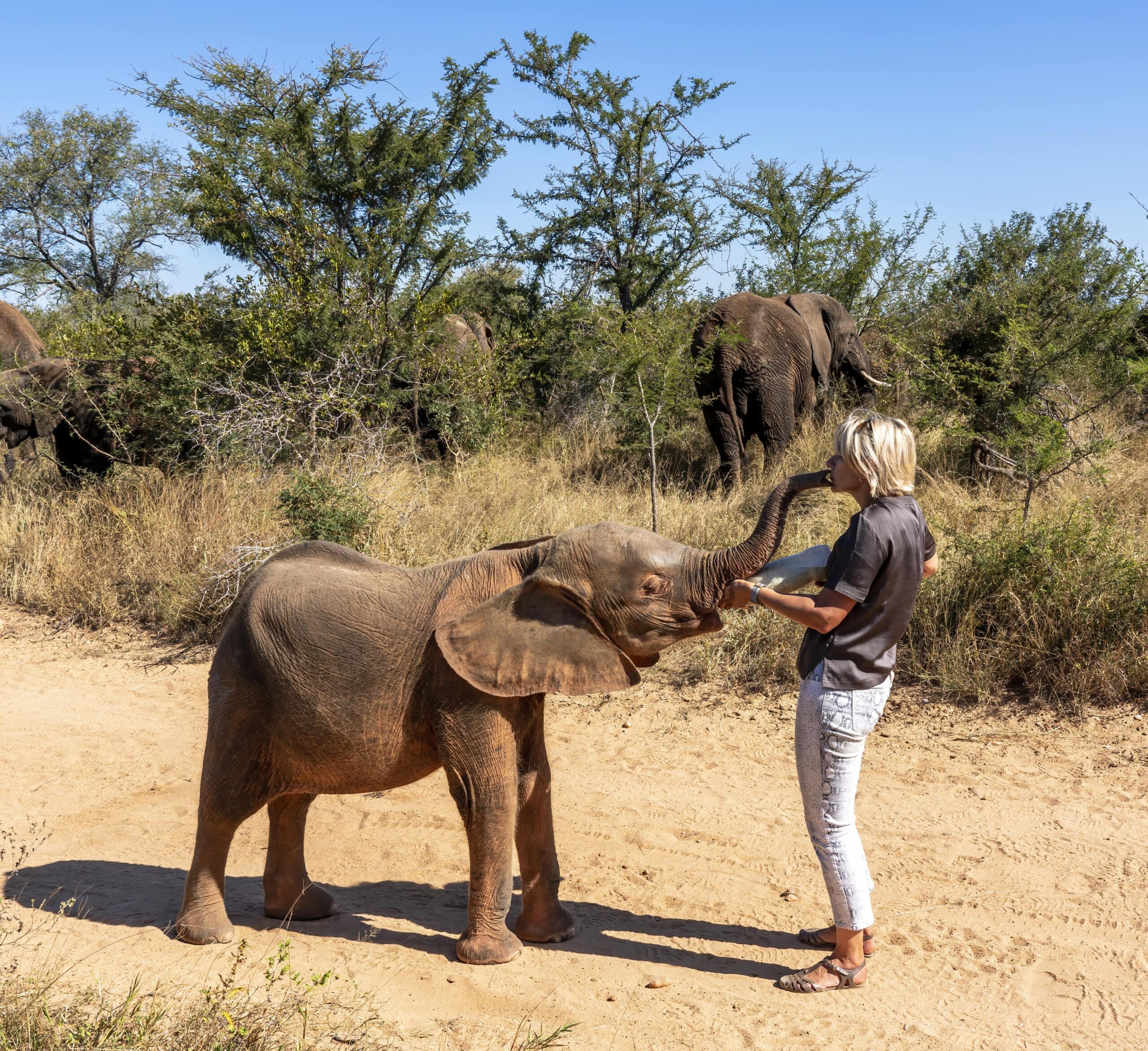
The Human Herd
Rehabilitation and integration are overseen by HERD Founder Adine Roode, Elephant Manager Tigere Matipedza, and the Elephant Carer Team. Our elephant advisors and wildlife vets play a vital role in these processes, including the long-term goal for the ultimate rewilding of the herd.
This human family is just as vital as the elephant herd. Our team of carers is responsible for the safety, security and comfort of the orphaned elephants. Not only do they provide the orphans with milk bottles throughout the day and night until they are fully weaned, but they also perform frequent medical checks on the calves to give them the best chance at surviving the effects of the intense trauma endured.
It takes a village to raise a baby elephant. That’s why our orphan programme covers all the orphaned calf’s needs, from feeding, family and stimulation to the funding of the vast expenses required.
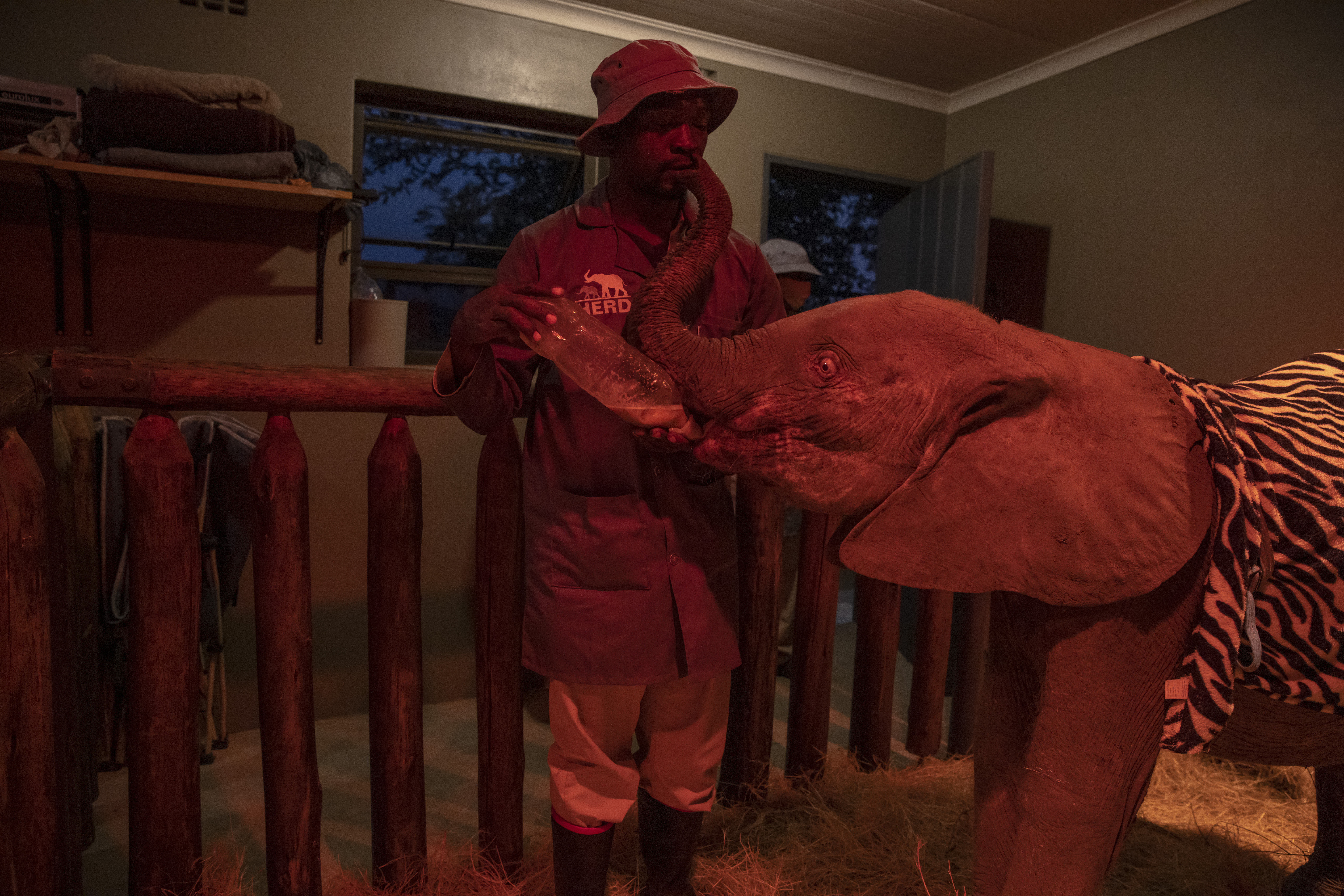
Road to Recovery
One of the biggest issues we face is to perfect the milk formula and energy and nutritional supplementation to replace what the calves’ mothers can no longer provide.
Since 2016, with our experience and research going back to 2002, we’ve worked with nutritional experts to create a milk formula that can give calves the necessary nutrients to help them grow, and more or less compares to natural elephant breast milk. Still, there is no “one size fits all” formula for calves, and each formula needs to be adapted to each calf, never mind their changing needs as they age. Feeding times also need to follow a strict schedule, with our carers feeding the calves throughout the night.
As social animals, elephants need company all the time, and therefore, we have to ensure around-the-clock care, with carers on day and night duty. Our human herd also needs to be rotated to ensure a calf does not bond solely with one person and is therefore not negatively affected if that carer goes on leave. Since calves bond so deeply with their caregivers, we need to consider how best to protect their emotional wellbeing.
Another health issue we face with these little ones is diarrhoea, as calves are prone to loose bowels brought on by not only their food or illness but emotional stress too. We have partnered with specialist vets to assist with these challenges, as well as other health issues such as the effects of dehydration and emaciation or starvation, and snare wounds.
It’s a 24/7 job, from their nutrition and medical needs to needing constant company, and we could use all the help we can get!
Help Save Our Vulnerable Gentle Giants
We rely on incredible people like you to keep us going. Every cent counts, and no contribution is too small. HERD relies on public funding to cover the operational costs to care for and support elephant orphans and the rescued herd, so we really appreciate your support.
Elephant Tales Blog
Want to hear the latest and greatest stories about what the elephants are up to? No two days are the same, and they always amaze us with their distinctive personalities and acceptance of one another. Follow us this way for all the latest stories of what’s happening at HERD.
